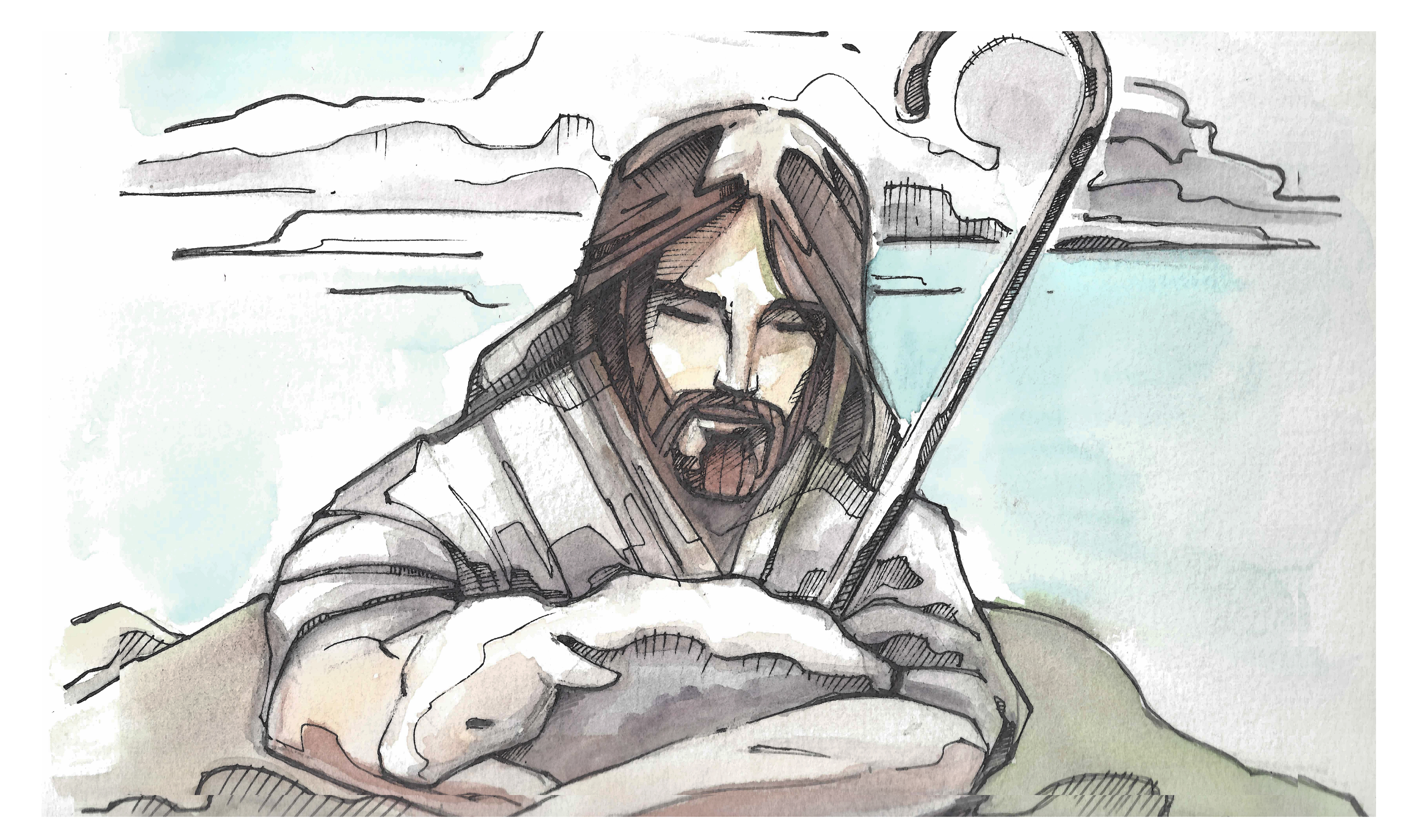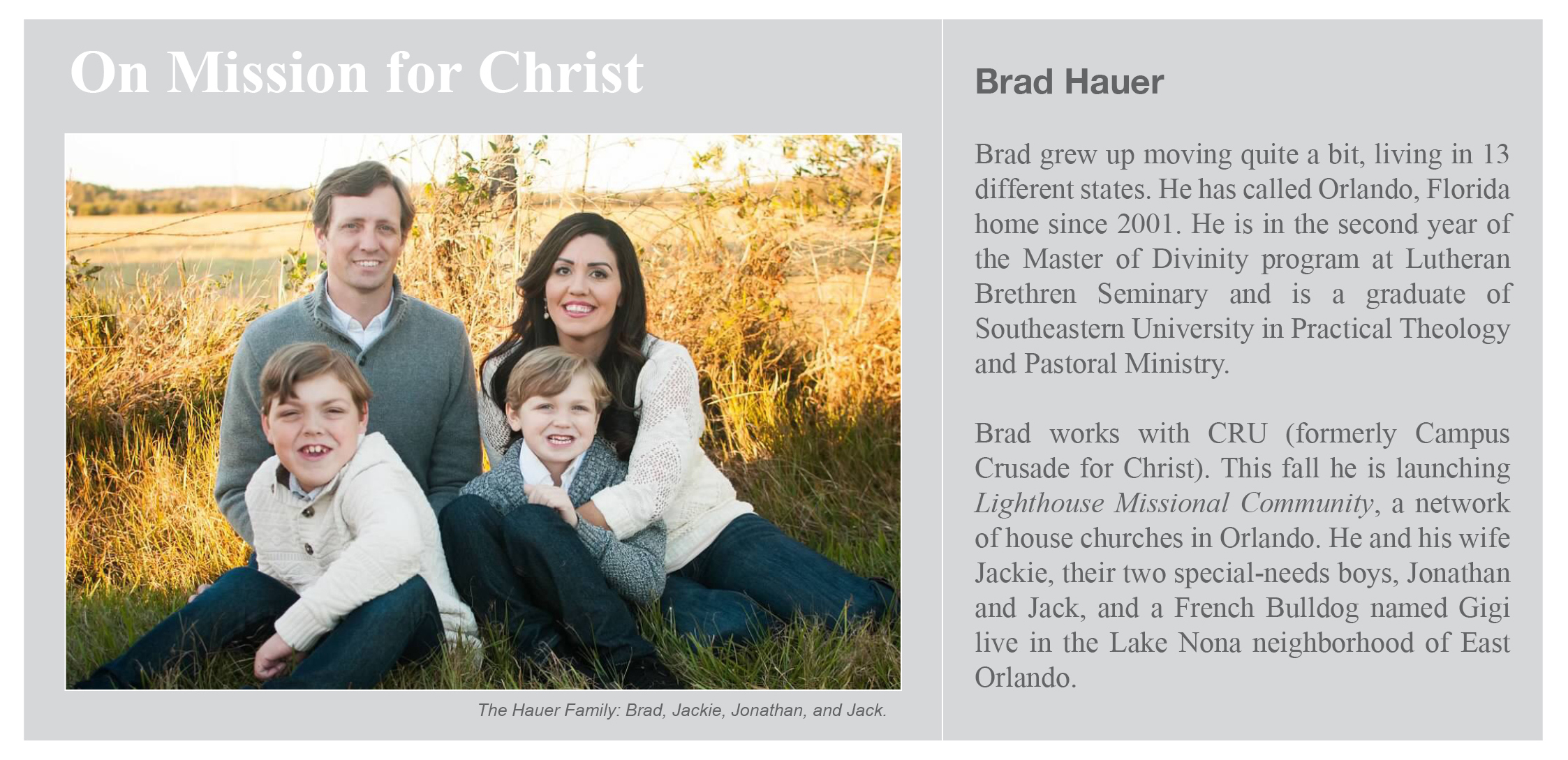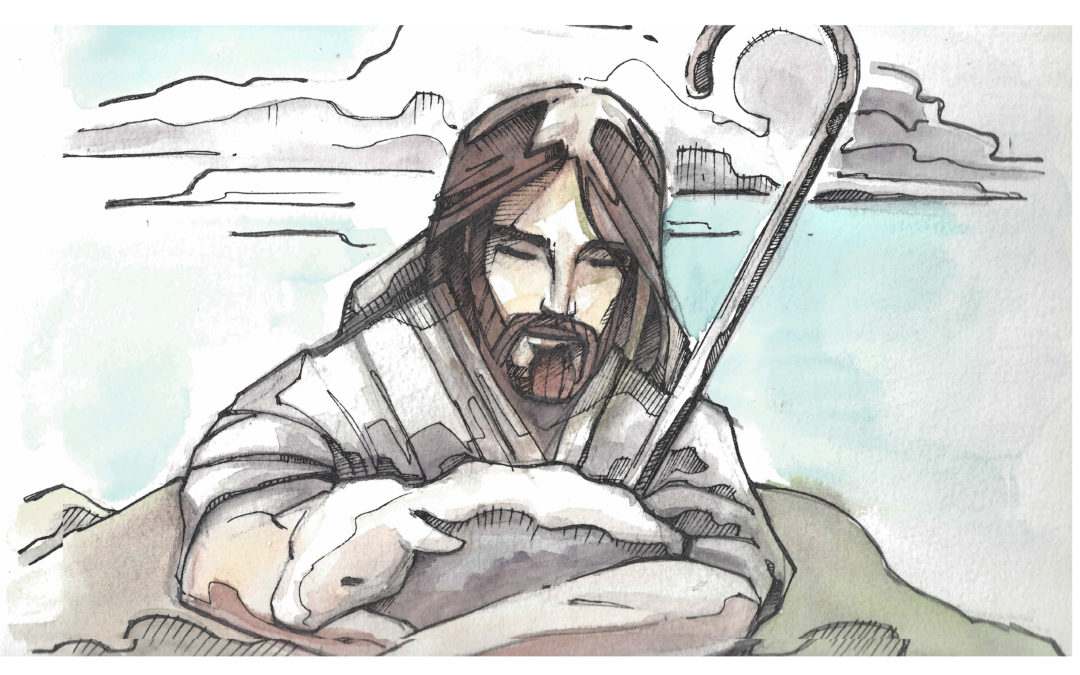
The text message on my wife’s phone read, “God told me last night the kids are your punishment.” Danny was very upset and was using Jon and Jack’s autism to inflict pain. The words stung for a moment, like bumping an old injury. But the pain quickly turned to pity. Danny’s god is the god of retribution who severely punishes you for your misdeeds. If you suffer, you must have done something to deserve it.
The Gospel of Mark (8:27-38) recounts the conversation of Jesus and his disciples on their way into the villages of Caesarea Philippi. Word of Jesus has spread. People are talking. Jesus asks his disciples what they are hearing, “Who do people say I am?” They answer: Some say a messenger—John the Baptist; others say a miracle worker—Elijah; and still others, a reformer—one of the Prophets. But now Jesus makes it personal. He presses the real question to his disciples, his closest friends, “I’m really not so interested in who others say I am. Who do you say I am?”
There’s something bigger about Jesus than the roles the people think he plays: messenger, miracle worker, reformer. Peter, to his credit, quickly steps up to the plate. “You are the Christ,” Peter says. And he is absolutely right. Peter understood there was more going on with Jesus. As C.S. Lewis has famously demonstrated, we can’t accept Jesus as a great moral teacher without accepting him as God: “A man who was merely a man and said the sort of things Jesus said would not be a great moral teacher. He would either be a lunatic—on a level with the man who says he is a poached egg—or else he would be the Devil of Hell. You must make your choice. Either this man was, and is, the Son of God: or else a madman or something worse…”
This is one of the critical points in Jesus’ journey of redemption. No more secrets with the disciples. They were charged, seriously warned, to tell no one else about him yet. But without a doubt, this is who he is. He is the Christ.
But what kind of Messiah is Jesus? Jesus explains that “…the Son of Man must suffer many things and be rejected by the elders, the chief priests and the teachers of the law, and that he must be killed and after three days rise again.” Mark says Jesus spoke plainly about this. But this word was not what they expected. Peter takes Jesus aside and begins to rebuke him. Messiahs don’t suffer, they conquer. Kings aren’t rejected, they rule. Gods are not killed, they are worshipped. It just doesn’t make sense. Peter doesn’t understand.
And neither would we. The theology of the cross doesn’t make sense to us. Pat Thurmer says: “We want a glorious savior, we want victory, we want power, prosperity, mighty displays, and sensible deliverance. The way of suffering and the cross sounds nuts to us. But the decisive exhibition of God’s justice, the greatest display of his strength, the vastness of his mercy, and the ultimate demonstration of glory and grace is accomplished in the suffering, death, and resurrection of Jesus. Any other plan, scheme, vision, or mission, no matter how much more practical, sensible, or attractive it appears to be, is from Satan himself.”
The message of the cross sounds foolish to natural man, but it is the power of God.
Jesus, turning and seeing his disciples, rebukes Peter in the strongest language. “Get behind me, Satan! You do not have in mind the concerns of God, but merely human concerns.” When natural man comes to think about God, it is possible to understand “the who,” but not “the how.”
Danny’s text message wasn’t the first time we encountered this kind of thinking. When Jonathan was born prematurely, with an unexpected genetic condition, and autism, we struggled to understand how this could happen. What had we done wrong? Was this our fault? Had God failed us?
What we didn’t fully see at the time was a God who is known through suffering and the cross. I used to think about his holiness, sovereignty, his unmatched power, and his highness. These things make sense to us. What doesn’t make sense is this God’s lowness, his humility, and dare we say, his weakness. Gods don’t die. It doesn’t make sense. That’s not the way we would do it. But this is who he is.
A God who dies naked on a cross. A God who forgives sin. A God who bears the burden of a messed-up world, taking the worst it has to offer upon himself. The Savior of special-needs kids, of guys with their minds set on the things of man, of self-righteous rejecters of his grace, rebellious daughters, rule-following sons, hard-hearted middle managers, and parents tempted to believe their kids are their punishment.
This is the Christ.
Brad Hauer is completing his Master of Divinity degree through the distance education program at Lutheran Brethren Seminary in Fergus Falls, Minnesota.


